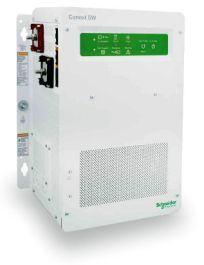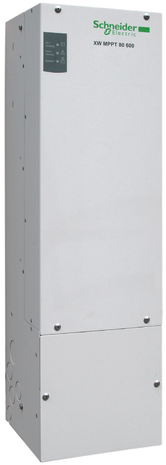Lt.Dan
Solar Wizard
Hey guys, I know I've gone back and forth SO many times between my choice on inverter/charger/scc. I need some help!
Its going in my RV, I live full time, and want to use less power and reduce my bill from the grid (Which is on average 1200kWh every month). I know I want the inverter to support split phase input and output w/ 48v DC input. I have my 272ah cells coming from Michael already and I'm getting closer and closer to pulling the trigger on my inverter, but I dont want to regret it! lol
I originally wanted 2x LV3048 MPP Solar inverters, which really gives me everything I need, including 2x PV inputs (I will have a PV Array on top of the trailer, and on top of a metal building I park next to), but its lacking in the surge power capability, high idle consumption and mounting 2 units and wiring 2 units is a little bit of a bummer.
Then I really turned my attention to the Growatt SPF 6000T that watts247 sells. Its a transformer unit with great surge capacity, a better UI, better warranty, and is a stand alone unit. Downside being a stand alone unit, and it only accepts 1x PV input with a max 150v. Also, with it having a transformer, its HEAVY!! The new Growatt 12000T has 2x 250v PV inputs which is really appealing, but its even heavier, and is twice the cost.
Now I'm looking at Victron units, plain and simple because of their reliability and well know company for putting out great products... at a price. So far the MPP and Growatts are both under $1500, which I really like, but both have their own downsides. Victron I understand will require 2x units like the MPP LV3048 units, which raises costs alone much higher than the others, but again, superior quality. Then I would have to get a separate SCC, which again adds more cost and more wiring, more space required, etc.
Does the Victron unit even give the options to prioritize power like the MPP or Growatts? Like I want it to mainly use PV to power stuff (when available), then use inverter the rest of the time until the battery gets low, then switches to Grid? If the Victron doesn't offer this, its more than likely out for me.
Any other manufactures or models you guys recommend? I'm not afraid of spending more if the cost is worth it! ROI is important, but not a deal breaker.
Its going in my RV, I live full time, and want to use less power and reduce my bill from the grid (Which is on average 1200kWh every month). I know I want the inverter to support split phase input and output w/ 48v DC input. I have my 272ah cells coming from Michael already and I'm getting closer and closer to pulling the trigger on my inverter, but I dont want to regret it! lol
I originally wanted 2x LV3048 MPP Solar inverters, which really gives me everything I need, including 2x PV inputs (I will have a PV Array on top of the trailer, and on top of a metal building I park next to), but its lacking in the surge power capability, high idle consumption and mounting 2 units and wiring 2 units is a little bit of a bummer.
Then I really turned my attention to the Growatt SPF 6000T that watts247 sells. Its a transformer unit with great surge capacity, a better UI, better warranty, and is a stand alone unit. Downside being a stand alone unit, and it only accepts 1x PV input with a max 150v. Also, with it having a transformer, its HEAVY!! The new Growatt 12000T has 2x 250v PV inputs which is really appealing, but its even heavier, and is twice the cost.
Now I'm looking at Victron units, plain and simple because of their reliability and well know company for putting out great products... at a price. So far the MPP and Growatts are both under $1500, which I really like, but both have their own downsides. Victron I understand will require 2x units like the MPP LV3048 units, which raises costs alone much higher than the others, but again, superior quality. Then I would have to get a separate SCC, which again adds more cost and more wiring, more space required, etc.
Does the Victron unit even give the options to prioritize power like the MPP or Growatts? Like I want it to mainly use PV to power stuff (when available), then use inverter the rest of the time until the battery gets low, then switches to Grid? If the Victron doesn't offer this, its more than likely out for me.
Any other manufactures or models you guys recommend? I'm not afraid of spending more if the cost is worth it! ROI is important, but not a deal breaker.





